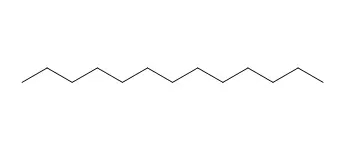| In vitro: |
| Ind. Eng. Chem. Res. 2010, 49, 19, 8908–8919. | | TiO2-Coated Cenospheres as Catalysts for Photocatalytic Degradation of Methylene Blue, p-Nitroaniline, n-Decane, and n-Tridecane under Solar Irradiation.[Reference: WebLink] | Biostimulation based on usage of soil amendments is growing due to their efficiency in removing different petroleum hydrocarbons (PHC) from contaminated sand or loam-sand soils.
However, the research on clay-rich soils with higher organic carbon content, in which PHC biodegradation may proceed differently and which are more difficult to clean up, has been less extensive.
METHODS AND RESULTS:
In a pot experiment, we studied and compared the effects of two soil amendments, natural zeolite-containing material (ZCM, 50 g kg−1) as a bulking agent and ammonium nitrate (0.3 g N kg−1) as a nitrogen fertilizer, on biodegradation of n-Tridecane (1 wt.%) in a weakly acidic heavy clay loam leached chernozem with fairly high organic carbon content (3.71%). After 48 days, the nitrogen-amended contaminated soil showed enhancement of both respiratory activity (basal and substrate-induced respiration rates) and the number of n-Tridecane- degraders. As a consequence, the extent of n-Tridecane biodegradation (86.5%) was essentially higher in the presence of added nitrogen than that in the non-amended soil (73.7%). In contrast, due to the partial retention of n-Tridecane molecules in its pores, ZCM retarded biodegradation to 56.0%, showed no significant effect on the number of n-Tridecane-degraders and, moreover, enhanced the decomposition of the soil intrinsic organic matter.
CONCLUSIONS:
The obtained data indicate that more precautions should be considered when using porous sorbents such as ZCM for remedial arrangements in PHC-contaminated soils. |
|






 Cell. 2018 Jan 11;172(1-2):249-261.e12. doi: 10.1016/j.cell.2017.12.019.IF=36.216(2019)
Cell. 2018 Jan 11;172(1-2):249-261.e12. doi: 10.1016/j.cell.2017.12.019.IF=36.216(2019) Cell Metab. 2020 Mar 3;31(3):534-548.e5. doi: 10.1016/j.cmet.2020.01.002.IF=22.415(2019)
Cell Metab. 2020 Mar 3;31(3):534-548.e5. doi: 10.1016/j.cmet.2020.01.002.IF=22.415(2019) Mol Cell. 2017 Nov 16;68(4):673-685.e6. doi: 10.1016/j.molcel.2017.10.022.IF=14.548(2019)
Mol Cell. 2017 Nov 16;68(4):673-685.e6. doi: 10.1016/j.molcel.2017.10.022.IF=14.548(2019)